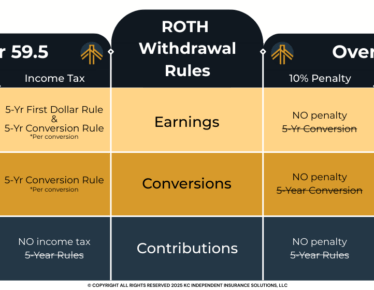What If I’m Still Working?
As you approach 65 and continue working, it’s completely normal to feel overwhelmed by conflicting advice about Medicare. Some clients tell us Medicare says one thing, Social Security says another, and podcasts or friends say something entirely different. We’ve seen this many times, so let’s walk through exactly what we need to know and what steps we should take together..
Step 1: Are You Required to Enroll in Medicare?
The first thing we determine is whether you’re required to enroll in Medicare at age 65. This decision depends on your employer:
- Fewer than 20 employees: Upon turning 65, you must enroll in Medicare Parts A and B to avoid lifelong penalties.
- 20 or more employees: Upon turning 65, you’re not required to enroll right away. You can stay on your employer’s plan and delay Medicare without penalty.
Let’s verify your employer size and coverage so we can time this correctly.
Step 2: Understand the Medicare Penalties
If you are required to enroll and delay, here’s what happens:
- Part B Penalty: 10% surcharge for each full year you delay enrollment beyond eligibility.
- Part D Penalty: 1% surcharge per month without drug coverage.
We’ll look at your current health plan to determine whether it qualifies as “creditable coverage,” which can help avoid these penalties.
Step 3: Consider IRMAA—The Income-Related Monthly Adjustment
Medicare bases your Part B and D premiums on your income from two years ago. If you’re a higher earner, you may be subject to IRMAA, which is essentially an income-based surcharge.
However, suppose you’re retiring or have had a significant drop in income. In that case, you may qualify for a life-changing event exception. We’ll review your income history and file an appeal, if appropriate, to lower those premiums.
Step 4: Can Your Employer Reimburse Medicare Premiums?
If you’re working for a small business or own your own company, here’s a powerful strategy we should consider: While employers can’t pay Medicare directly, they can provide a salary increase or reimbursement to cover your Medicare premiums. Helping employees enroll in Medicare can significantly reduce their group health costs and increase your after-tax benefits.
Let’s explore if this is an option you can negotiate with your employer or implement in your own business.
Step 5: Compare Costs—Medicare vs. Employer Plan
We’ll break this down together:
- Your current monthly premiums
- Deductibles and copays
- Out-of-pocket maximums
- Network access (PPO, HMO, etc.)
- Whether you’re covering a spouse or dependents
In many cases, clients find that transitioning to Medicare lowers their total healthcare costs, but it depends on the plan.
Step 6: Watch for HSA Conflicts
Are you currently contributing to a Health Savings Account (HSA)? If so, enrolling in Medicare Part A—even for free—disqualifies you from further HSA contributions. We’ll weigh whether continuing HSA contributions or enrolling in Medicare offers better long-term value based on your tax strategy.
Step 7: Know the Language Before You Enroll
Medicare’s terminology can be confusing. Parts A, B, C, and D are only the beginning. Then there’s the Medigap “alphabet soup” of plans—F, G, N, and so on. As your advisor, we’ll walk through what each of these means, including:
- The difference between Medigap (Medicare Supplement) and Medicare Advantage
- Which options make the most sense based on your doctors, prescriptions, and travel habits
- How switching between plans works, and what deadlines matter
Step 8: Who Should You Listen To?
There are many voices out there—HR, Social Security, friends, even government call centers like HICAP or Sourcewise. While these are helpful resources, many are limited in the scope of advice they can legally offer. For example:
- HR and Social Security cannot advise you on plan selection.
- County services offer unbiased but limited information—they aren’t always licensed or able to recommend specific plans.
- Insurance companies only promote their products.
That’s why we encourage you to work with an unbiased Medicare broker—ideally, someone like us, who can compare multiple plans across multiple carriers and give you personalized advice at no cost to you.
Final Thought: Choosing the Right Plan Is Like Choosing the Right Doctor
Selecting a suitable Medicare plan isn’t a one-size-fits-all decision. The right Medicare strategy depends on your unique situation—your income, health status, employment, spouse coverage, and long-term goals.
Let’s evaluate everything together. We’ll look at:
- Timing of enrollment
- Avoiding penalties
- Maximizing employer options
- Reducing your total out-of-pocket costs
- Protecting access to the providers and medications you rely on
And when it’s time to act, we’ll guide you step-by-step through enrollment, without the pressure or confusion.
Contact Us Get in Touch
Have a question or feedback?
Fill out the form below, and we’ll respond promptly!

By providing your name and contact information, you are consenting to receive calls, text messages, and/or emails from a licensed insurance agent about Medicare Plans at the number provided. You agree that such calls and/or text messages may use an auto-dialer or robocall, even if you are on a government do-not-call registry. This agreement is not a condition of enrollment.
Not connected with or endorsed by the United States government or the federal Medicare program. This is a solicitation of insurance, and your response may generate communication from a licensed producer/agent.



